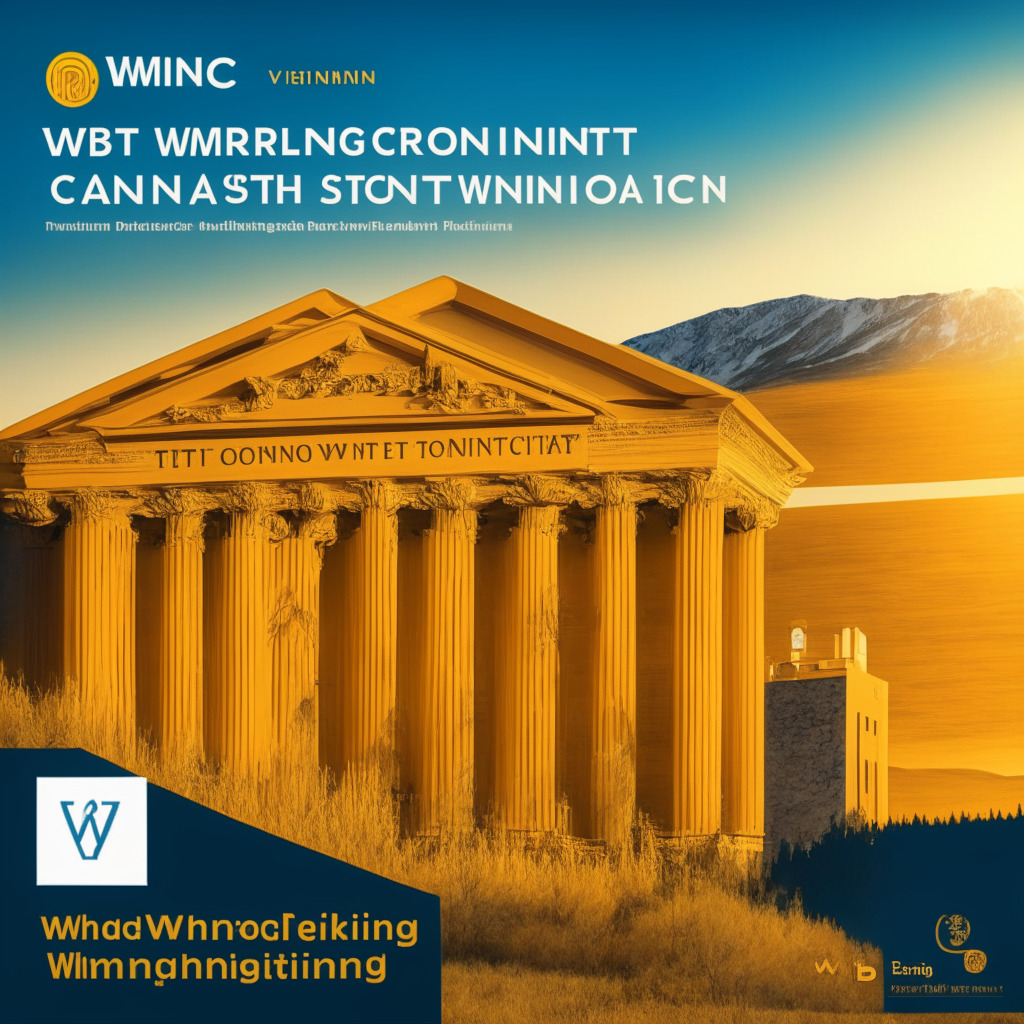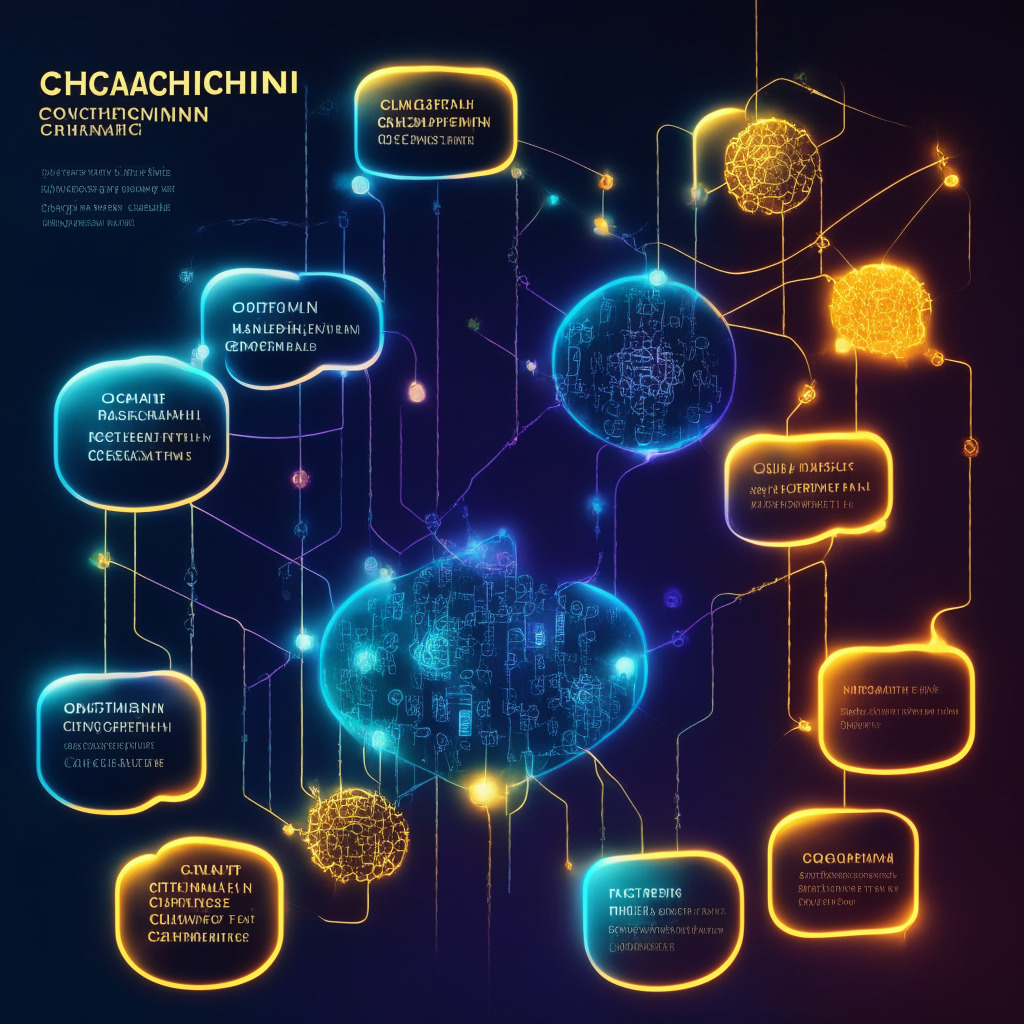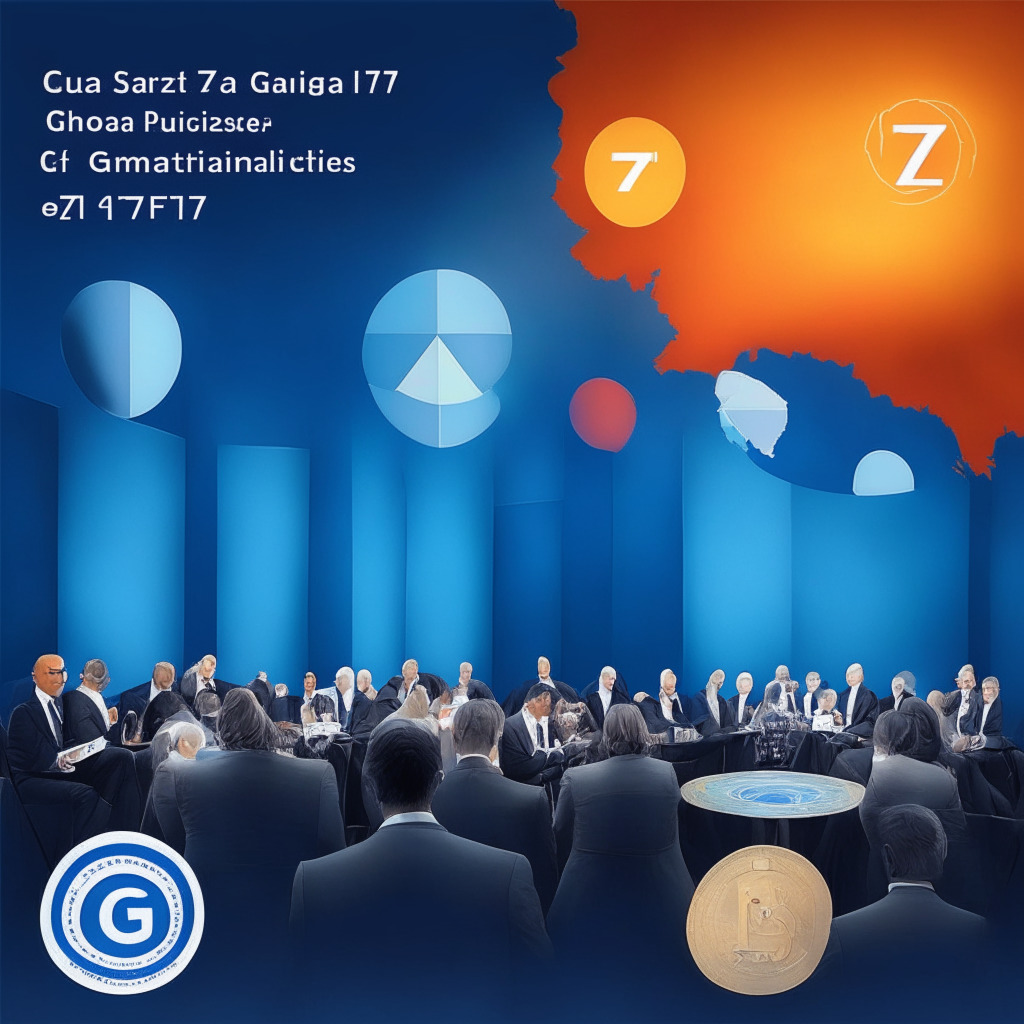Two distinct stablecoin bills from US House Financial Services Committee reflect differing perspectives among Democrats and Republicans. Despite differences, lawmakers aim to reach a bipartisan agreement for effective regulation of the burgeoning stablecoin market while protecting consumers and investors.
Month: May 2023
Pakistan’s Crypto Dilemma: Government Ban vs Soaring Adoption Rates
Pakistan’s government hardens its stance on digital assets, with the Minister of State for Finance announcing that cryptocurrencies will “never be legalized.” Amid Financial Action Task Force concerns, the State Bank of Pakistan and the IT Ministry work on banning cryptocurrencies despite their growing popularity, as annual crypto trading volume reaches $25 billion.
Wyoming’s Custodia Bank to Launch Bitcoin Custody Services Amid Federal Reserve Lawsuit
Custodia Bank is launching a Bitcoin custody service for clients, as announced by CEO Caitlin Long. The bank aims to link traditional financial systems with cryptocurrencies, promoting stability in the financial sector. Previously known as Avanti, Custodia Bank has provided digital asset services since 2020.
Terra Classic Blockchain Upgrade v2.0.1: Impact on LUNC Price and Future Developments
The Joint L1 Task Force has successfully completed the v2.0.1 upgrade to the Terra Classic blockchain, introducing new features and security updates. In response, LUNC’s price surged by 3%. The next significant upgrade, Cosmwasm v1.1.0, is slated for May 31, aiming to bring utility across Cosmos and Terra Luna 2.0.
Cross-Chain Messaging Protocols: Fueling Crypto Growth or Risky Business?
The future of blockchain technology is deeply interconnected with cross-chain messaging protocols, like Wormhole. A recent $50 million fund aims to assist startups working with Wormhole, driving progress in building innovative applications, infrastructure, and tools across various ecosystems.
Coin Cafe’s Hidden Fees Debacle: Balancing Crypto Regulation and Industry Growth
New York Attorney General Letitia James secured $4.3 million from Coin Cafe, a Brooklyn-based digital currency service provider, for charging undisclosed, exorbitant fees for its “free” wallet storage services. This case highlights the importance of effective regulation in ensuring investor safety and combating deceptive marketing practices in the growing cryptocurrency industry.
Stablecoin Regulation Debate: US Lawmakers’ Divide and the Future of Digital Dollar
The US House Financial Services Committee’s digital assets panel debated on stablecoin regulations, highlighting divides between Republican and Democratic ideas. Both parties do align in addressing risks to consumers and maintaining the US dollar’s role in global commerce. Lawmakers are paying heightened attention to stablecoin regulations and wider crypto topics, marking progress in US oversight of the industry.
CFOs Embezzling Millions in Crypto: DeFi Risks, Cascading Effects, and Cautionary Tales
Cryptocurrencies capture attention with stories of financial success and technological innovation, countered by crime and fraud. Cases like Nevin Shetty’s $35 million embezzlement for personal cryptocurrency investment and its subsequent loss demonstrate potential risks within the volatile DeFi sector, serving as a cautionary tale for enthusiasts.
Unveiling the XRP Lawsuit: Hinman Speech Controversy and Its Impact on Blockchain Future
The recent developments in the XRP lawsuit, including the denial of the motion to seal the Hinman speech documents, have shifted focus to the Summary Judgement. This crucial phase will impact not only XRP’s future but also the broader blockchain and cryptocurrency industry, potentially revealing SEC’s inconsistency in classifying digital assets.
Play-to-Earn Gaming: Revolutionizing the Industry or Diluting its Essence?
“Play-to-earn” games, integrating blockchain and cryptocurrencies, allow players to earn real-world value, revolutionizing the gaming industry. However, concerns include overshadowing genuine gaming experiences, and complexities in navigating blockchain technology. The coexistence of monetary incentives and pure gaming enjoyment remains a debate.
The Meteoric Rise of $COPIUM: A Meme Coin Destined for Greatness or Fleeting Phenomenon?
The new meme coin, $COPIUM, has skyrocketed by 1000% within minutes of launching, attracting influential industry figures and garnering attention. With innovative NFT and token airdrop campaigns, a dedicated community, and strategic anti-dumping measures, $COPIUM sets itself apart as a contender in the cryptocurrency market.
Controversial Crypto Entrepreneur’s Bail Battle: Impact on Market Stability & Regulatory Landscape
Controversial crypto entrepreneur Do Kwon faces Montenegrin prosecution contesting his bail approval amid forgery charges. This case raises questions about the effectiveness of current cryptocurrency regulations, international cooperation, and highlights the need for a careful balance between regulation and innovation to ensure market safety and stability.
Financializing Carbon Credits: Blockchain’s Role in Mangrove Restoration Projects
Solid World has launched the first forward carbon assets pool on the blockchain using Polygon, aiming to revolutionize carbon credit project financing by enabling pre-selling future credits. Focusing on mangrove restoration, this liquidity pool combines AI-powered risk assessment with forward contracts, facilitating funding for climate-positive projects while addressing potential drawbacks like energy consumption.
Integrating DeFi and Traditional Finance: Galaxy’s OTC Options Trade Shifts the Game
Galaxy Digital’s first over-the-counter (OTC) option trade marks a significant stride towards integrating traditional finance and decentralized finance (DeFi). This development follows the collapse of FTX and several crypto lenders, highlighting risks associated with centralized finance practices. DeFi continues to gain momentum as market participants recognize its potential in reducing inherent vulnerabilities in traditional bilateral options trading.
G-7 Urged to Regulate Cryptocurrency: FATF Recommendations and Global Compliance
FATF President Raja Kumar urges G-7 finance ministers to address cryptocurrency regulation and implement recommendations tackling money laundering, terrorist financing, and virtual safe havens for unlawful transactions. Compliance with updated crypto requirements remains low, with 73% of countries, including G20 nations, partially complying with FATF Standards.
DAOs vs Traditional Corporate Structures: Finding Balance in the Crypto World
The rise of decentralized autonomous organizations (DAOs) brings the question of whether they can replace traditional corporate structures. Hector Network, a DeFi project, discusses the possibility of adopting a more centralized future, addressing governance dilemmas and practicalities of operating a decentralized entity amid legal and regulatory issues.
Bitcoin Milestone: 1 Million Wholecoiners, Hyperbitcoinization or Bubble?
Bitcoin enthusiasts celebrate over one million addresses holding at least 1 BTC, a trend that has seen steady growth since mid-2021. Experts like Adam Back argue that “hyperbitcoinization” is coming, but concerns of a potential bubble caused by speculative behavior remain.
Ripple Acquires Metaco: The Future of Blockchain, CBDCs, and Custody Sector Opportunities
Ripple acquires Swiss custodian Metaco for $250 million to transform the cross-border payment market and explore Central Bank Digital Currencies and tokenized assets. This deal, amid evolving regulations and emerging opportunities, signifies an exciting time for blending traditional finance with the crypto landscape.
Billionaire Battle: How Elon Musk’s Twitter Data Could Tip the AI Race and Its Implications
Billionaire investor Mark Cuban discusses the AI race between companies like OpenAI, Google, Meta, and Microsoft, and believes Elon Musk may have an advantage due to his access to Twitter data for training AI models. Cuban highlights the importance of intellectual property and data in developing Large Knowledge Models.
Exploring the Impact of Blend, Blur’s NFT Lending Platform: Opportunities and Controversies
NFT marketplace Blur introduced Blend, a lending platform that has reached over 100,000 ETH ($181 million) in total volume in just 17 days. Blend allows users to take out Ethereum loans using NFTs as collateral, contributing to the emerging “NFTfi” niche and further boosting Blur’s prominence.
WestPac’s Crypto Exchange Block: Protecting Investors or Stifling Innovation?
WestPac, Australia’s oldest bank, plans to block transactions to and from Binance and other cryptocurrency exchanges to protect investors from scams. With a third of payment transactions made directly to crypto exchanges, WestPac initiates an account blockage trial aiming to mitigate risks.
NFT Market Evolution: Trading Volume vs Sales and the Battle for Dominance
The NFT market is evolving with May’s trading volume reaching $333 million and 2.3 million sales executed this month. Ethereum leads in trading volume, while other blockchains like Solana and Polygon report higher NFT sales. The ongoing struggle for NFT marketplace dominance continues between Blur and OpenSea.
Miners’ Massive Transfers to Crypto Exchanges: Market Significance and Potential Impact
The global digital asset market has recently experienced an uptick, with Bitcoin surging almost 3%. However, recent data shows miners transferring 1,750 BTC ($48 million) to Binance, indicating possible incoming selling pressure. This raises questions about market stability and the potential influence of large players.
Westpac’s Crypto Blockade vs Binance: Impact on Aussie Users and CBDC Developments
Australian bank Westpac banned customers from transferring funds to Binance exchange to reduce scam-related losses, impacting Binance’s Australian users. Binance Australia also temporarily halted AUD deposits due to a decision by their third-party payment service provider.
US
A joint hearing on digital asset regulation between the House Financial Services Committee and Agriculture Committee revealed conflicts between lawmakers on handling cryptocurrencies. Witnesses advocated for legal amendments addressing blockchain technology, while some lawmakers deemed existing regulations sufficient. The stalemate complicates predicting major legislative changes or digital asset firms enjoying freedom from regulation.
AI Chatbot Showdown: Analyzing Top Contenders and Their Unique Features
AI chatbots have grown rapidly since OpenAI’s ChatGPT release, with Google and Microsoft introducing their own. This article evaluates the strengths, weaknesses, and unique features of ChatGPT-3.5, Microsoft’s Bing chatbot, Google’s Bard, and You.com’s YouChat to help users make an informed choice.
Chinese State-owned Firm Enters Hong Kong’s Digital Asset Hub: Pros, Cons, and Main Conflicts
Chinese state-owned real estate company Greenland Holdings plans to join Hong Kong’s digital asset hub by creating a new unit to acquire virtual asset trading licenses. This move supports Hong Kong’s efforts to become a prominent digital assets trading center and diversifies Greenland Holdings’ business in the growing market.
Crypto CEOs Eye Europe for Clearer Regulations: Boon or Bane for Innovation?
Many crypto CEOs, including Coinbase’s Brian Armstrong and Ripple’s Brad Garlinghouse, are considering European markets, especially France, for more lenient crypto regulations. With 72 registered crypto companies in France and clearer regulation compared to the US, European markets may attract more businesses.
Crypto Platform Collapses: Exploring Longevity, Regulations, and Investor Uncertainty
The recent liquidation of cryptocurrency platforms Voyager and Bittrex has sparked concerns about the digital finance sphere’s longevity and regulatory landscape. Investors are left uncertain as these events indicate potential risk in the future.
Beyond the Screen: Shifting Focus from NFT Speculation to Artistic Expression
London’s HOFA gallery presents “Beyond the Screen,” an exhibition showcasing animated crypto art from artists like XCOPY and OSF. The exhibition aims to make digital art more accessible by emphasizing artistic expression instead of financial gains, thus challenging traditional perceptions of the crypto art scene.
Italy’s AI Workforce Struggle and Blockchain’s Trust-building Potential
Italy allocates 30 million euros to support those at risk of losing jobs to AI-driven technology through Fondo per la Repubblica Digitale (FRD), promoting digital skills and accelerating digital transition. Recent AI chatbot ban in Italy triggers global conversation on AI policy and potential of blockchain for trustworthy AI framework.
Unemployment Drops, Markets React: Crypto’s Growing Role in Economic Shifts
The recent decrease in weekly unemployment benefits and continuing claims has impacted U.S. stocks, with the Dow Jones Industrial Average falling and the cryptocurrency market experiencing a marginal decline. Stronger-than-expected jobless claims increase recession fears while the labor market remains highly competitive.































